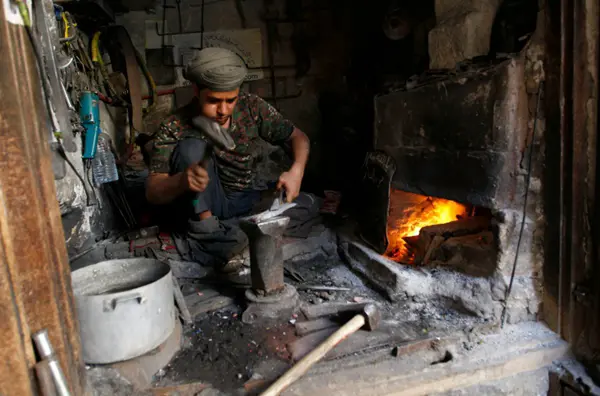Abdullah Sarhan laments having to sell his furniture to feed his family, but he is only one of thousands in Yemen struggling since rebels stopped paying salaries two months ago.
The situation gets worse by the day for the inhabitants of Sanaa, controlled by the Huthi rebels since September 2014 and subjected to 19 months of air strikes and a blockade by a pro-government Arab coalition.
"I had to sell my furniture to put food on the table for my family and ensure that my two children can continue going to school," said Sarhan.
The finances of employees like Sarhan, and those who are retired, deteriorated further in September, when the UN-recognised government transferred the central bank to Aden, the southern city that serves as a temporary capital.
President Abedrabbo Mansour Hadi sacked the bank's governor and relocated it to the port city after accusing the Iran-backed Huthis of diverting funds from foreign reserves.
A UN report revealed in August said the Huthis were diverting about $100 million from the central bank per month, and that the foreign reserves had dwindled to $1.3 billion from about $4 billion in November 2014.
The measure prompted an immediate halt in salaries payment in Sanaa and other regions under the control of the Shiite Huthis and their allies of renegade troops loyal to former president Ali Abdullah Saleh.
"How can we continue paying rent if we don't have enough to eat," asked Ibrahim Ahmed, who was forced to move his family to live with his parents in the countryside.
Professor Jamil Aoun said he had to abandon lecturing at Sanaa University and work in a brick factory.
"We have to earn our living," he explained.
His colleague Abdullah al-Muammar al-Hakimi resorted to selling qat, the mild narcotic leaf popular in the Arabian Peninsula country.
"Selling qat... is more honourable than begging or having people's blood on one's hands," Hakimi wrote in a post on Facebook announcing his decision to quit teaching.
The suspension of salaries is the latest sign of economic deterioration in Yemen, which was already the poorest Arab country before the deadly conflict escalated in March 2015 with the intervention of the Saudi-led coalition.
(AFP)
 简体中文
简体中文





